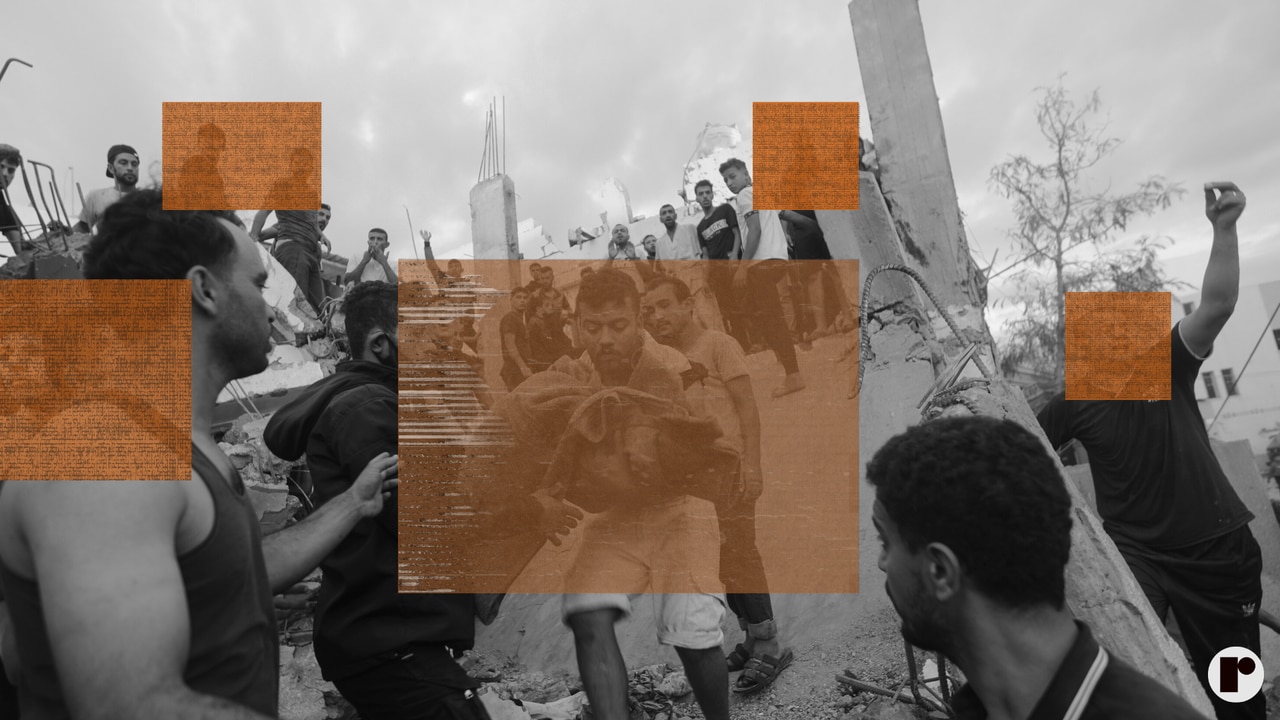PERSPECTIVES: The mainstream media has paved the path to genocide in Palestine
I was nine years old when I opened the door of my family home in Brooklyn to two large white men in jeans and a Yankees cap flashing their FBI badges at me. They said they wanted to talk to my older brother, a 20-year-old New Yorker who was born and raised in the city, about any ties he might have to terrorist groups.
It was 2001, just a few months after two planes hit the World Trade Center, killing over 2,700 people. As a New Yorker, I experienced the trauma of mass death that cast a shadow of grief and fear over my city. As a Palestinian Muslim, I watched as that grief was manipulated into increased Islamophobia, surveillance and violence against my community.
Today, we are living the consequences of decades of continued dehumanization. Our deaths have been normalized in the mainstream media to such a degree that the world can unquestionably consume images of mass slaughter in Palestine in real time.
Over the last 12 days, more than 3,000 Palestinians in Gaza have been killed by Israeli airstrikes, including more than 1,000 children. Forty-sevevn families have been completely wiped out from the civil registry. Entire bloodlines erased from existence, with not even one surviving member.
This is not a war. It is by definition a genocide.
At the same time, just like in the lead-up to the Iraq war, mainstream media outlets in the United States have quickly fallen into lockstep, reporting Israeli military propaganda as confirmed breaking news. From the disproven claim that babies were beheaded by Hamas militants, to the denial of Israeli war crimes despite testimonies from witnesses and journalists on the ground, dangerous lies are being reported as unquestioned fact and disseminated by the most powerful institutions in the world.
Anti-Palestinian and Islamophobic narratives in the mainstream media have far reaching and deadly consequences. This week, 6-year-old Wadea Al-Fayoume, a Palestinian boy from Chicago was killed and his mother seriously injured when their landlord entered their home with a knife and stabbed them, reportedly screaming, ”you Muslims must die.”
The deadly consequences of truth telling
For Palestinians, telling the truth has always held grave consequences. While no major mainstream media networks have correspondents on the ground in Gaza, 13 Palestinian journalists have been killed in the midst of the same violence they were reporting on. Whether you are an artist posting on social media from occupied Palestine, or a professor in a renowned U.S. university, expressing solidarity and support for the Palestinian people has resulted in people getting fired, doxxed, imprisoned, or even killed.
In the past week alone, the few Palestinians who are interviewed on mainstream media have been edited into digestible soundbites, or cut altogether. Our voices, whether calmly providing context to a brutal 75 year occupation, or filled with rage and grief for our loved ones who are trapped under siege, are always silenced. We are never allowed to express our full humanity.
I became a journalist because I deeply believe in the notion of speaking truth to power. As a Palestinian, I’ve watched thousands of my people over the years risk their lives to rewrite the narrative that tries to erase our existence.
But the coverage of Palestine in the last 12 days is nothing short of a betrayal of those values from my media colleagues.
As the world refuses to tell their stories, Palestinians in Gaza are forced to speak truth to power themselves. They use what little internet access they have to tell us what is happening to them. To narrate a genocide.
If we don’t want to be complicit, we must believe their story, and act.
Nour Saudi is a New York City-based writer and audio journalist. She is currently a producer at Futuro Media, where she leads production on podcast series. She envisions a just and equitable media industry as one that goes beyond representation and identity, and actively and unequivocally calls out the harmful policies being enacted against historically marginalized communities.
